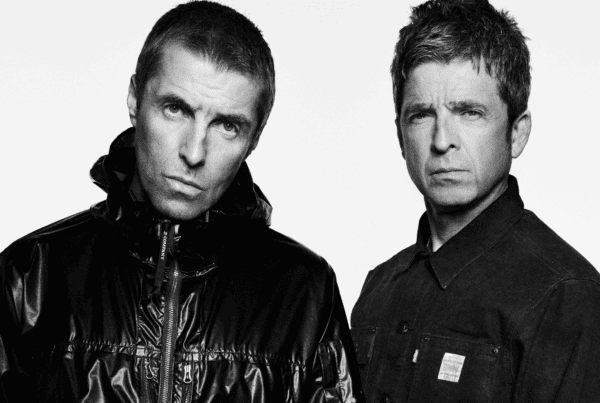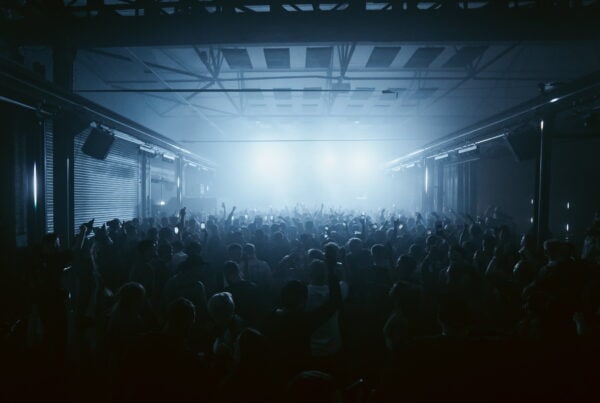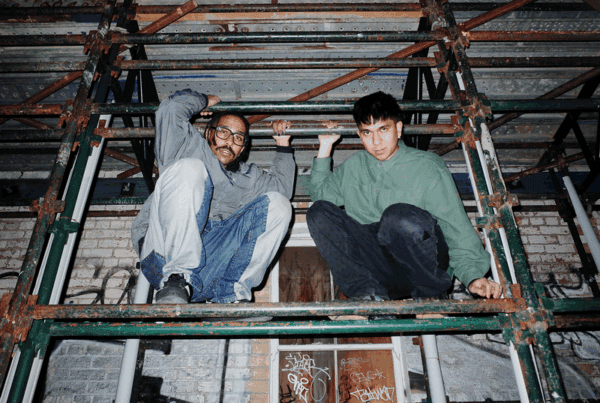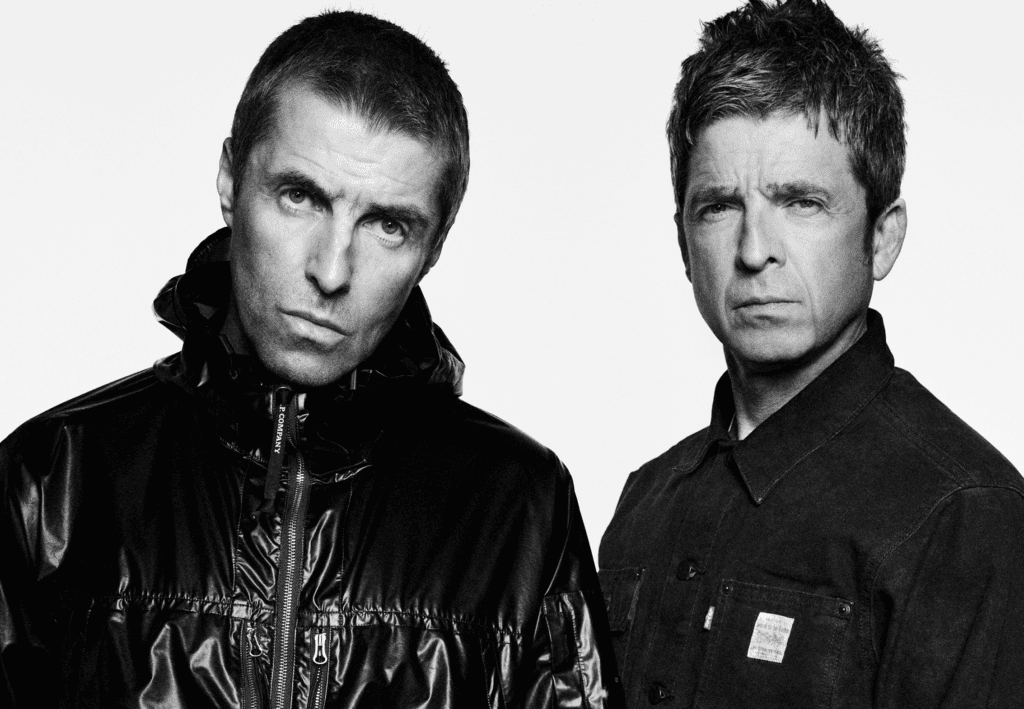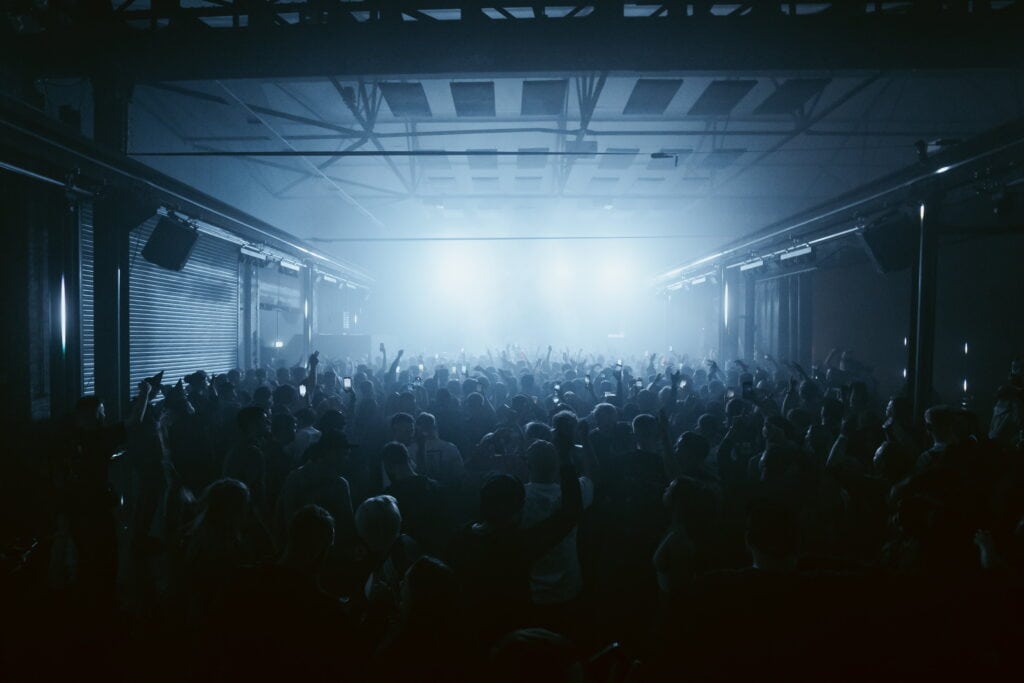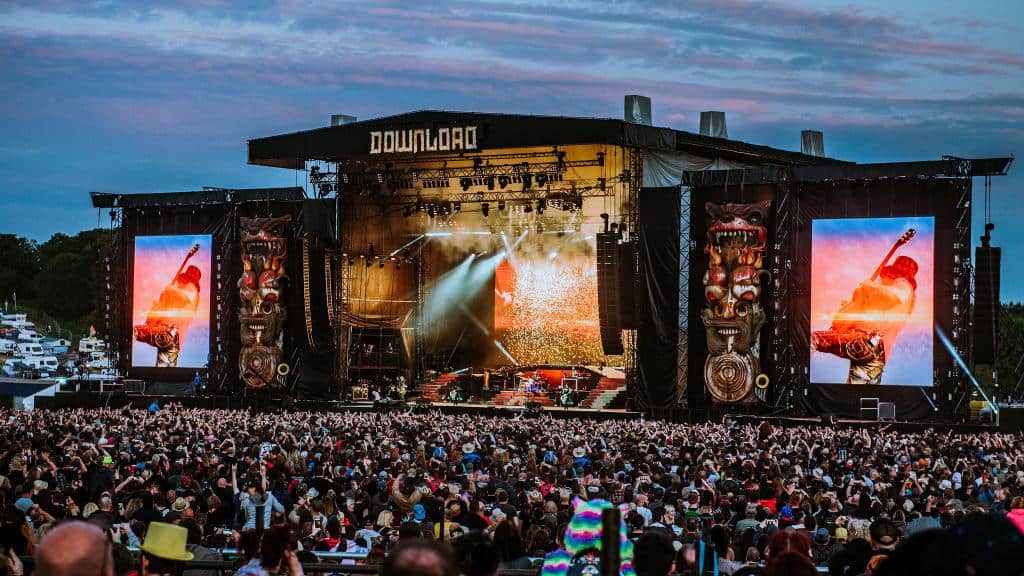
Press start to begin!
What is the best video game soundtrack of all time? Some may argue it to be an impossible question, and to be fair, I agree. Given the amount of video games that get released every year, it would be impossible to come up with an exhaustive list, because one game that one person might have played, 1000 other people haven’t, and vice versa. Obviously, there are some classic video games that are more broadly agreed upon for their greatness, like the original Super Mario Bros., but even those are disputed. So, I’m not going to try and give an exhaustive list. What I am going to try and do, is give you a list of a few of my favourite video game soundtracks, and also get my friends to chip in two or three of their favourites as well. Obviously, because it’s our own personal list and there’s only about 7 or 8 that I’m going to discuss in all, there’s quite a big chunk of stuff that I would have missed out that are among the classics, because we’re only covering about two or three of the so-called classics. So, there isn’t any Zelda for instance, which I know is a series held in high regard as far as soundtracks are concerned, and there’s a few other examples like Sonic, that aren’t here either (even though ‘Colours’ is brilliant), but the ones that there are, we think are really something special, and might give you a few suggestions as to some pretty good ones. A couple of these even surprised me.
Cyndaquil42 recommends: Deltarune: Chapter 1 (2018) – Toby Fox
The first suggestion comes by way of my friend, top 2600 ‘Geometry Dash’ player Cyndaquil42, who recommended the soundtrack to ‘Deltarune: Chapter 1’ by Toby Fox, the follow up to the world renowned ‘Undertale’ game, which I thought would actually be his choice for this, given the cultural omnipresence of tracks like ‘MEGOLAVANIA’, but he decided to go with ‘Deltarune.’ Before I say anything though, I’ll let him lay out his argument:
With ‘Undertale’ and ‘Deltarune’, a lot of people will have heard at least one of the songs without knowing it, which always says a lot about how good the music actually is. If you’ve played the game, you’ll really understand why the music helps and heightens it so much, which might also explain why it’s used so much in YouTube videos. One thing that’s interesting though to me, is what people think of the music that haven’t played the games. I was speaking to Evan about this, and he listened to a song [writers note: I can’t remember which, sorry], and I remember him saying, “It sounds like you’re on a quest to slay a dragon or something”, which is interesting, because it has nothing to do with that, but I could really understand where he was coming from.
Anybody who knows anything about either game will know it’s a joke that people say that Toby Fox actually didn’t write that many songs, he just wrote a melody and then changed it around a bunch. If you’ve ever watched ‘Star Wars’, if you ever watched a film, you’ll know that a certain theme of music piece will play whenever a character walks on screen, e.g. if Darth Vader is walking on screen, it’s the ‘Imperial March’ etc., and those themes can interweave, and it’s just one of the many things about those films that people love: the creativity with leitmotifs. They’re really good at utilising those themes, and the same goes for ‘Undertale’ and ‘Delatrune.’ When you play the games, you’ll probably hear certain motifs throughout, and so many of them are all weaved through the different songs, and they all work. On top of the fact that, if you know the lore, you’ll know exactly why they are where they are in the soundtrack, which is really cool.
To get down to brass tacks though, the songs just sound really good. They’re such fun to listen to, and interestingly, they don’t get boring, even if they sound quite similar. There’s a lot of other good music game music, but not much other game music makes for entertaining listening in isolation to me in the way that ‘Deltarune: Chapter 1’ does. There’s just so much variety that really helps to keep it super interesting throughout. There’s not really much more to say, because it’s kind of hard to describe, and I think anybody who hasn’t played the game should definitely at least watch or play the games themselves. I’d highly recommend Jacksepticeye’s playthroughs. At the very least, hopefully I’ve convinced you to listen to the soundtrack.
I have to agree with him that there is some bloody good stuff on here. For me, it probably works at its best or close to its best when it’s just doing what Toby Fox is already known to do very well in: that very whimsical, adventurous, colourful, yet still subtly retro feel in the music which has become a trademark of his. The genius of it is quite simple: a great melody, that sticks in your head, doesn’t overstay its welcome, and maybe has some nice additions too. Not just ambient background music, but music that, if you were to listen to it isolated, it would be pretty pleasant to listen to. Key examples like the opener, ‘The Chase’, ‘Legend’, ‘Vs. Lancer’, ‘Rude Buster’, or ‘Checker Dance’ would be a few that I’d single out, as well as tracks like ‘The Field of Hopes and Dreams’, ‘WORLD IS REVOLVING’, or ‘Vs. Susie’ being built out with more orchestrated elements or prominent drum beats. There are some straight 8 bit tracks I think are really cool as well, like the aforementioned ‘Vs. Lancer’, or especially ‘Chaos King.’ As I say, it takes that classic retro game idea of having a really cool melody that sticks in your head very nicely. Having the 8-bit stuff on here might seem like an obvious attempt to bait nostalgia, but they’re still a ton of fun regardless.
I don’t find it a perfect soundtrack personally though, because there are just a few tracks, like maybe ‘A Home Called Hometown’, ‘Empty Town’, ‘Card Castle’, or ‘Lantern’ that don’t have the same originality or charm as some of the others. They just don’t seem to stand out, or have as much of a distinctive flair to them as others do. Even more so in the case of the track ‘School’, which, to me, just sounds like corny background music from a Japanese visual novel. Another thing that’s a shame about this soundtrack is that it’s 40 tracks long, but only runs 40 minutes overall, so you end up with more than 10 15-second long, stinger type tracks, which I understand come part and parcel with a game like this, but they take up a lot of dead space. Granted, some of them like ‘Gallery’ were really cool. I wish it was a bit longer, but it still has a really cool sound with those bit-crushed arpeggios, same with other songs like ‘Quiet Autumn’ and ‘Hip Shop.’ They’re decent, but they seem a bit unnecessary, most of them anyway, taking up space on a soundtrack that already is pretty short as it is.
Thankfully, it does end very strongly with the last trio of tracks. ‘You Can Always Come Home’ has some incredibly nice melodies and acoustics behind it, and ‘Before the Story’ is incredibly whimsical and spacious as well. It’s a very nice way to end off, but for me the main centerpiece of the soundtrack is easily the track ‘Don’t Forget’, featuring Laura Shigihara, the only track on the soundtrack to feature any kind of human vocals. What it does so well is how it takes the repeating leitmotif that comes throughout the soundtrack, and delivers a definitive version of it. It’s a very sombre sounding piano ballad, so maybe it’s a little out of leftfield, but it’s done great. Laura’s vocals sound incredible, the way the pianos are treated is fantastic, and it has a perfect sense of emotion and finality to it. I do wish it was longer, because it’s barely even a minute long, but it’s still fantastic. So, while the ‘Deltarune: Chapter 1’ soundtrack might not be perfect, with a few too many interstitial or generally unessential moments to me, when it’s at its best, it’s incredibly whimsical, colourful, adventurous, exuberant, lively, full of fun, and gives the original ‘Undertale’ soundtrack a serious run for its money.
Honourable Mention: Elden Ring (2022) – Various
As far as more conventional video game soundtracks are concerned, at least in the modern day, I often kind of think of them as just standard orchestral scores, which is what came to mind when I first listened to the Elden ring soundtrack after a friend recommended it. At the same time though, I don’t really know how I really feel about this fully. I’m sure it’s great when you’re playing the game. The atmospheres work very effectively, and the touches of strings are very eerie and cool, especially in context I imagine. As a whole individual listening experience, though, it doesn’t do a lot for me. There are absolutely some standout tracks, sure. ‘Crumbling Farum Azula’, ‘Miquela’s Haligtree’, or maybe ‘Atlas Plateau’, are particularly compelling in their respective uses of atmosphere and soundplay. As well as that, I’d say nearly every track from around ‘Formidable Foe I’ onwards are definitely a lot more in your face with the use of orchestration and male voice choirs, more prominent drums, and just a generally more intense aura. Particularly tracks like ‘Godfrey, Elden Lord’ are real standouts in that area. Overall though, a great deal just felt very boring to listen to by itself, personally, especially with the number of spatial, ambient/sfx tracks on the first disc. As I say though, I imagine once you’re properly in the weeds of the game itself, it would work pretty damn well.
Halo: Combat Evolved (2002) – Martin O’Donnell and Michael Salvatori
I thought ‘Halo’ would be much the same thing as ‘Elden Ring’, but God was I wrong. With ‘Halo’, obviously the opening theme is iconic with those male voice choirs, strings, and drums. It sounds fantastic, and its utilisation as a motif within other tracks in the soundtrack is super effective. Obviously, there are other tracks like ‘Lament for Pvt. Jenkins’, ‘What Once Was Lost’, ‘Sweet Autumn’, or ‘Devils… Monsters…’ that offer a similar kind of orchestral, dark ambient music that I was expecting from the Halo soundtrack, having not listened to it before. That said, there is so much more to it than I expected.
A lot of the soundtrack does function off a base of orchestral or ambient melodic bases, but a lot of it augments that with so much more, including influences from sci-fi, electronica, world music, and even bits of rock and metal as well, which ends up being such a cool combination. One big reason is the use of tribal-like drum rhythms, which are used best, in conjunction with a variety of other influences, on some of my favourite tracks like ‘Truth and Reconciliation Suite’, ‘The Long Run’, ‘Perilous Journey’, ‘The Gun Pointed at the Head of the Universe’ or ‘Covenant Dance.’ Those are examples of tracks where you get a melding of a fair few of the above influences, all coming together into tracks that, to be honest, I don’t think even could work as background music, which I mean as a compliment. I can’t imagine hearing stuff like ‘Truth and Reconciliation Suite’, which goes through so many peaks and valleys, without getting distracted. How are you supposed to play the game without bopping your head to this? After all, I just listened to the soundtracks as they were, because obviously I wasn’t going to shell out loads of money to play Halo, but it was just brilliant as an album in itself, which is a huge achievement.
What’s more, the straight up ambient tracks like ‘Ambient Wonder’, ‘Trace Amounts’, or ‘Alien Corridors’ have a genuinely alluring quality to them, which I really didn’t expect, because obviously the more ambient tracks in ‘Elden Ring’ felt quite boring and run of the mill. So, with Halo, like I mentioned earlier, I expected the ambient tracks to just be boring sci-fi nonsense. Instead, with the way the various synthesizer layers are utilized, you can definitely see it working as background music, but it also has all the auditory interest it would need if you’re just listening to it as a piece of stand-alone ambient music. In the same way, symphonic tracks like ‘Brothers in Arms’ or the title track are show-stealers with their orchestrations, which, given that there are so many game soundtracks that work off a boilerplate, Hans Zimmer style sound palette, the fact these two tracks are show stealing even by that standard, is a feat very rarely seen. Composers Martin O’Donnell and Michael Salvatori did a really good job, because not only can they carve out their specific sonic niche with the tracks I mentioned earlier, but even the more straight ahead tracks that maybe wouldn’t seem as out of place on any other video game work just as well with that extra edge of kind of distinctiveness. It almost feels as though when they were making this game, they said “we want to make more ambient and orchestral tracks like any other video game, but the one thing we’re not going to do is make them boring”, and I commend them for it.
What’s more, not only is the mix of world music, electronic and rock on tracks like ‘Covenant Dance’, for example, brilliant, but they also take even more sonic left turns throughout the duration of the soundtrack. For instance, tracks like ‘Under Cover of Night’ or ‘A Walk in the Woods’, go for a spacious synth-pop feel, which I definitely didn’t think I’d ever hear on a Halo soundtrack, but kind of makes sense. The way Martin and Michael treat the atmospheric drums and sleepy, pillowy synthesizers almost sounds like something that could have been on a latter-day Michael Jackson release like ‘Stranger in Moscow.’ Some may say it sounds kind of cheesy, and I agree to an extent, but just hearing this on a Halo soundtrack, have it not be the worst thing ever, and in fact, be two of the most enjoyable moments on the whole of the soundtrack for my money, despite their cheesiness, is very, very impressive. We’re not even close to done yet though, as there’s yet more excitement to be found further on in. Tracks like ‘Rock Anthem for Saving the World, or maybe ‘Shadows’, with their mix of tribal instrumentation, electronic textures, and distorted squawking guitars nearly sounds like something that wouldn’t have been out of place, on a ‘Talking Light’ era Residents release. The sheer breadth of the material on this soundtrack is seriously impressive. You go from tribal rhythms and world music, to electronic, to ambient, to orchestral, to rock and pop. For a soundtrack I just thought was going to be essentially just ‘Elden Ring’ orchestra fodder with a slight sci-fi edge, I got so much more here than I bargained for.
Donkey Kong Country Series (1994 – 2014) – David Wise, Eveline Novakovic, Kenji Yamamoto
Before any more of my friends’ suggestions crop up again in the next part, I thought I’d end this part in a characteristically longwinded fashion, and integrate one of my own personal choices in here, those being the three, “hallmark” Donkey Kong Country games: ‘Donkey Kong Country’ (1994), ‘Donkey Kong Country Returns’ (2010), Donkey Kong Country: Tropical Freeze (2014). I did originally want to cover all of the Donkey Kong Country games, because tracks like ‘Stickerbush Symphony’ from ‘Diddy’s Revenge’, or ‘The DK Rap’ from Donkey Kong 64 are pretty iconic, but I quickly realised that it would take way too long, so I decided just to stick with these three. Starting with the original, there’s obviously a ton of what would become classic themes scattered throughout, not only in terms of the Donkey Kong franchise, but video games in general. A lot of them characterised by super kooky, upbeat melodies, making use of instruments like mallets, strings and horns, and often backed by super catchy, danceable beats, which I think became the MO for the best of what the soundtrack and the franchise in general had to offer. Whether it’s the main theme’s iconic tribal rhythms, Cranky Kong’s shop music with the kooky mallet sounds, ‘The DK Island Swing’, the map music, the bonus level music, or the maybe the mine music, they’re all have undeniably infectious at their core, and in a lot of cases, pretty groovy too. A lot of the music exclusive to the original Donkey Kong country trilogy that didn’t make an appearance in the reboots was a real treat to discover as well. Prime examples include the intense boss music, Candy’s very jazzy love song, Funky’s very uppity, slightly hip-hop inspired fuege, the iconic King K. Rool boss fight music, which will always be brilliant with its super fun pirate shanty influence, or particularly the brilliant music in the ice cave. I originally mistook this track to just be a kind of ambient filler, and so skipped over it initially, but upon revisiting it, I was really captivated by the melodies on that track and thought it sounded great.
There are definitely some ambient tracks that work on this soundtrack though, like the aforementioned mine music, or particularly ‘Aquatic Ambience’, which for me, and many others, is the main jewel of this soundtrack. The sound of the melodies is absolutely pristine, with such a beautiful otherworldly quality to them, which is just fantastc every single time. In addition, the very sparing shots of percussion, or pianos, or bass, work incredibly, and the sense of atmosphere that surrounds it is completely enveloping. You can see why it’s considered one of the greatest pieces of video game music, and in my opinion, may in fact be, the greatest ever piece of video game music. That said, some of the later ambient tracks in the game, like maybe the temple, ‘Misty Menace’, or to a latter extent ‘Northern Hemispheres’ as well, just don’t manage to cultivate that same sense of genuine wonder that made ‘Aquatic Ambience’ so great. It wasn’t just written beautifully, but felt genuinely spacious and ethereal, which makes sense given that it apparently took the processing chip to the limits in order to make it. Whereas the others I mentioned just seem like fairly boilerplate ambient stuff by comparison. Like with ‘Deltarune’, there’s also just some tracks that I don’t especially care for, like maybe the factory music, or the credits music. just because either they’re not really doing anything that we haven’t heard already, or that’s really that interesting to begin with. Also, tracks that would be revisited and revitalised in later games, in this game, just sound a little bit weedy. like maybe ‘Treetop Rock’, or the mine cart level theme. They sound great in later games, which I’ll get on to, but here, looking back at it, they just sound slightly limp, or don’t quite have the heft behind them that I think they need to truly be great. On the whole though, as a soundtrack, it’s still an absolutely fantastic, genre defining, and in fact medium defining, game soundtrack.
Moving on to ‘Country Returns’ and Tropical Freeze’, what I think these soundtracks do great, is basically take the appeal of the original ‘Donkey Kong Country’ soundtracks and just seek to amplify it even further. With the clarity of sound the Wii and WiiU give, nigh on every track on both of these soundtracks ends up sounding brilliant, just from a sonic perspective, right from the off. To start with ‘Country Returns’, not only do the redux tracks like ‘Life in the Mines’, or particularly the forest themes, end up being absolutely fantastic. ‘Treetop Rock’ being a key example. So, the tracks that I wasn’t really a fan of from the original soundtrack for sounding a little weedy, are given the heft, and again, clarity, that I think they rightly deserve, because they really come into their own here. Speaking of improvements, the newer more ambient or chilled out tracks like ‘King of Swing’, ‘Boulder Roller’, or ‘Factory Friction’ that I might have been bored by in the original games, are imbued with a great sense of space and atmosphere that does them so many favours, with the sparing shots of either percussion, or flutes in the case of ‘King of Swing’, working brilliantly to foster a genuinely otherworldly sound. As I’ll reiterate again, such otherworldly, atmospheric qualities are exploited so much better with the increased sound clarity. ‘Tidal Terror’ would be another wonderful example, boasting an almost sinister edge to its melodies, which I really enjoy.
Of course, the type of tracks the game probably does best is the more jolly and upbeat tracks, which here do not disappoint at all. They all sound so exuberant and full of life, packaged with exceptional melodies and a great sense of fun, which tracks like ‘Jungle Hijinx’ or ‘Mast Blast’ are absolutely full of. The use of tribal instrumentation throughout is done particularly incredibly. The reworking of reccurring motifs throughout the game, like the map music for example, depending on locale, is also very clever, whether it’s the Cliffs that go for a bit more of a murky, “desert-ish” feel, or notably world 8, the Volcano, where the use of more orchestration and male voice choirs is masterful, helping to build up that intensity beautifully while not sacrificing charm or memorability.
While a lot of the soundtrack works off the same kind of trademark world music template, with the use of tribal rhythms, flutes, and mallets, there are also moments on the soundtrack of more stylistic diversity, which end up being some of my absolute favorite moments. A great example would be the track ‘Automatic Action’ for the ‘Music Madness’ level in the factory world. It uses great, lively drumbeats, fantastic electronic melodies, touches of industrial textures, and yet again, a lovely sense of atmosphere that fits it super well. I remember when I first played this game about 13 or so years ago, this track was always a standout for me, with its almost uncharacteristically danceable feel. Don’t get me wrong, it’s not exactly a rave track, but it still has a really cool vibe. The music for ‘Palm Tree Groove’ is fantastic as well. I absolutely fell in love with the really nocturnal jazz on this when I was re-listening to this soundtrack. The way they treat the pianos is fantastic, the horns are used incredibly, and that double bass, my God. So, I would say that, while it kind of takes a sonic palette and sticks with it for most of the soundtrack, utilised extremely well of course, the moments of stylistic diversity are definitely moments to keep your eye (or ear) out for, as they often end up being some of the soundtrack’s standout moments. Hell, even some of the smaller, more interstitial tracks, like the fun little hip-hop beat used for DK’s Treehouse, are great on this,
I feel like ‘Tropical Freeze’ is brilliant for many of the same reasons. Firstly, the reduxes on this soundtrack, again, are fantastic. This is particularly true in the case of ‘Aquatic Ambience’, which I think was one of the only weak tracks on the last game. The way it’s redone it here is incredible (I’m sure, in no small part, thanks to the return of original DKC composer David Wise). The sense of space that came through in the original already is bolstered very well, yet again, by the WiiU’s advanced sound capabilities. If it was a jewel in the crown before, now, it just IS the crown. Although, of course, the original compositions are unbelievable as well. Livelier tracks like ‘Mangrove Cove’, ‘Shipwreck Shore’, ‘Twisted Trunks’ and ‘Mountain Mania’ are bursting with that well known sense of fun and colour, with impeccable, vibrant melodies, and some brilliant, intricate layers of percussion. Furthermore, more dramatic, intense tracks like ‘Sawmill Thrill’ work very nicely to create that vital sense of tension, and the more atmospheric tracks like ‘Alpine Incline’ and ‘Irate Eight’ are particularly great, with the baseline on the latter being one of the most standout moments on the whole soundtrack for me.
In addition, songs like ‘Forest Folly’ also make ingenious use of space, with fantastic melodies to go along with it. By a similar token, the way that they slightly remix a lot of the music for whenever you’re in water, even occasionally adding additional elements, is pretty genius. At every turn, this soundtrack tries its best to give you every single dimension of what makes Donkey Kong music great. Also, like with ‘Country Returns’, the use of more prominent orchestration in the final world is absolutely fantastic, creating that well-needed sense of intensity, drama, and grand scale. As another quick aside as well, a lot of the tonally “quirkier” tracks, particularly in world 5, like ‘Jelly Jamboree’ or ‘Jamming Jams’ carry a serious sense of personality and zaniness in a very odd, idiosyncratic way, which I think works wonders for its purposes.
Although there are some very key differences between the two ‘Returns’ soundtracks, an obvious one being that while ‘Country Returns’ went for that more general world music style, this one, being called ‘Tropical Freeze’, opts for a, duh, tropical sound palette, with great use of instruments like Hawaiian guitars and steel drums, as well as coming through in the very laid back, chilled vibe of things like Funky Kong’s shop music. I would say there’s also much, much more of a stylistic breadth on the ‘Tropical Freeze’ soundtrack than there is on the ‘Country Returns’ soundtrack, which makes me think that, as much as I do love the ‘Returns’ soundtrack, this one may beat it out purely for its stylistic diversity alone. Not only are the tropical sounding tracks great on this, but there’s also a ton of other stuff for you to get your teeth into. As mentioned already, the standout moments in the previous game were the ones that went out on a bit of a musical limb, and so the fact that this is basically a soundtrack where no world has the same sound palette works brilliantly in its favour. For instance, I think the African music in the Savannah world, with its use of group choirs, intricate percussion, and flutes sounds euphoric. I’ve always had an interest in African music, and obviously ‘Tropical Freeze’ isn’t exactly the right place to get educated on African music, but I think they pay homage to it rather tactfully here, and again, the sense of space again is impeccable. Tracks like ‘Grassland Groove’ or ‘Baobab Bonanza’ just exemplify that to a tee.
That’s obviously far from the only example. The folk influence on tracks like ‘Canopy Chaos’ is done very well. It feels very rootsy and homely, very fun, but also has a lightly whimsical feel to it as well, which I really like, and the reggae jam on ‘Busted Bayou’ was the definition of an unexpected but welcome surprise. Also, the more metal style tracks on the world bosses for world 1, 5 and 6 are particularly great, because they’re not just the standard “heavy boss music” you’d find in most video games, but are genuinely thrashy at some points. Yes, it has the showmanship and sense of occasion added from the pianos and things like that, but some of the riffs and grooves are actually fairly gnarly, particularly on the world 5 boss, which almost goes for an industrial, Rammstein type feel.
This game is also one of the rare occasions where I can say the credit music is great, because what’s been a letdown for a few of the soundtracks of until now, is that the credit music has been kind of lacklustre, but the way they utilize a jazz-rap sound here is done brilliantly. It takes the kind of hip hop swagger that you maybe associate with Donkey Kong, but adds that extra jazzy, slight kooky element just to keep you on your toes. For me though, the crown jewel of this soundtrack is the track ‘Windmill Hills.’ Again, it goes for a more rootsy, folksy style of instrumental like on ‘Canopy Chaos’ perhaps, but absolutely epitomises why I love the Donkey Kong soundtracks, in the sense of youthful abandon, pure fun, boundless whimsy, and incredible atmosphere, along with the masterful use of fiddles, acoustic guitars, and accordions. It’s danceable, vibrant and it just puts a massive smile on my face every time I listen to it. So, while both ‘Returns’ games have undeniably stellar soundtracks, the sheer stylistic breadth, on top of already genius songwriting, and aided by superior audio technology, means ‘Tropical Freeze’ takes the cake.
So, those are some of mine and my friends’ potential candidates for the best video game soundtracks of all time. I’d like to again thank Cyndaquil42 for his help in this part. As you may have guessed, though, we haven’t covered everything we wanted to just QUITE yet. So, join us in part two, where we’ll be telling you about one of the grandest and most epic soundtracks possibly conceivable to my mind, and finally give a certain red-hatted plumber his musical flowers…
Check out Cyndaquil42 (recommender of ‘Deltarune’) here.

